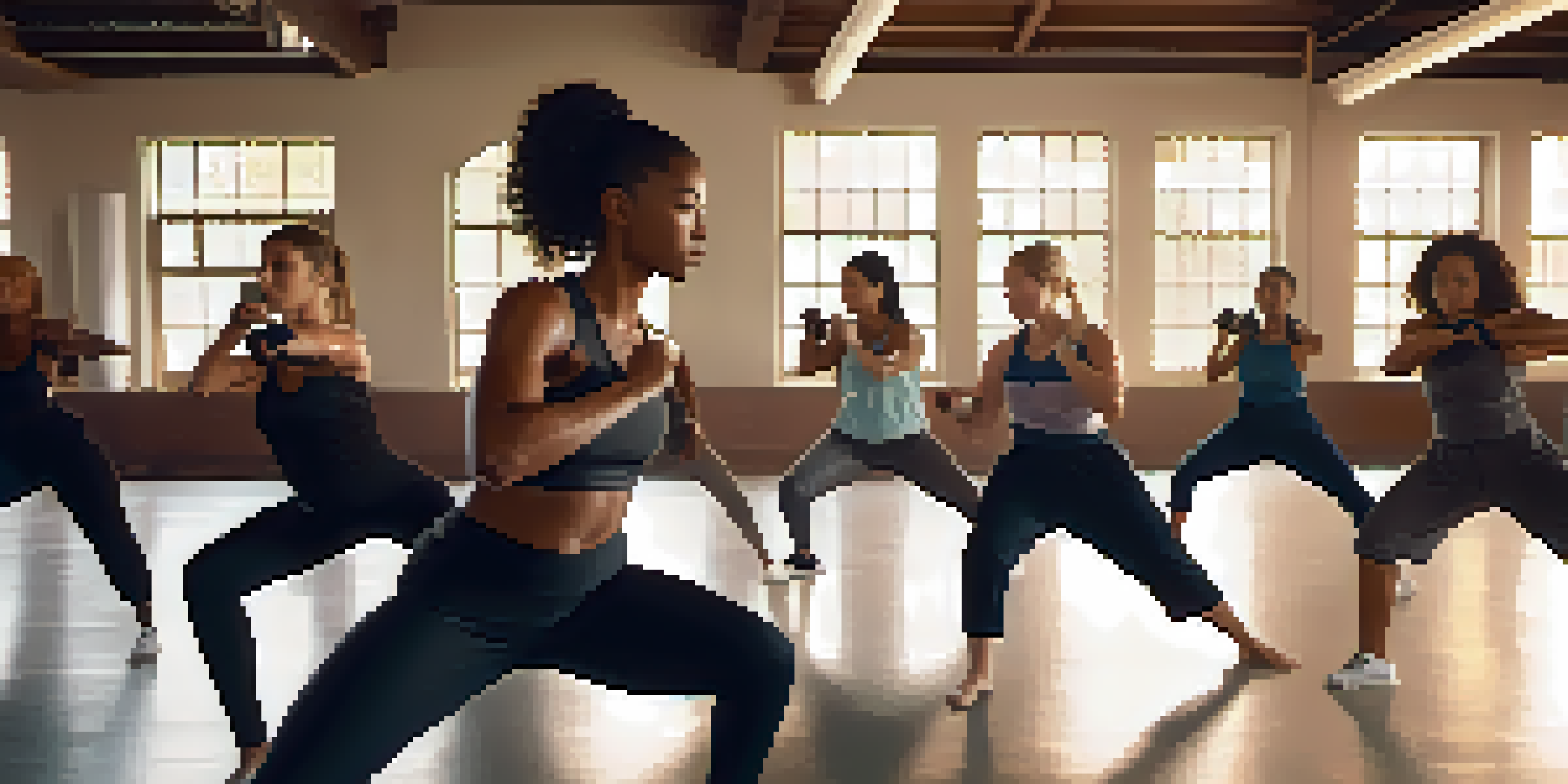Empowering Women: The Importance of Self-Defense Training

Understanding the Need for Self-Defense Training
In today's world, personal safety is a growing concern, especially for women. Many face various forms of harassment and violence, making self-defense skills not just beneficial but essential. Understanding the need for self-defense training is the first step toward empowerment and confidence.
The best way to predict the future is to create it.
Self-defense training equips women with practical skills to protect themselves in threatening situations. It goes beyond physical techniques; it encourages awareness and preparedness in everyday life. This holistic approach fosters a sense of security that can transform how women navigate the world.
Moreover, these skills can significantly boost self-confidence. Knowing how to defend oneself provides a psychological advantage, enabling women to move through life with greater assurance. This newfound confidence can positively impact many areas, from personal relationships to professional endeavors.
Physical Benefits of Self-Defense Training
Engaging in self-defense training has numerous physical benefits that extend beyond self-protection. Regular practice enhances strength, agility, and coordination, which contribute to overall fitness. Just like any workout, it helps release endorphins, leading to improved mood and reduced stress levels.

Additionally, self-defense techniques often involve cardio and resistance training, making it an effective way to stay in shape. Think of it like a fun, energetic dance class where instead of learning choreography, you're mastering moves that could save your life. This physical aspect can be a powerful motivator for women to stay active.
Empowerment Through Self-Defense
Self-defense training equips women with essential skills that foster confidence and enhance personal safety.
As women become more aware of their bodies and capabilities, they may also develop a healthier relationship with fitness and movement. This empowerment through physicality can lead to long-term lifestyle changes that promote well-being and resilience.
Mental Strength and Self-Defense Training
Self-defense training is not just about physical prowess; it also builds mental strength. Participants often face scenarios that challenge their decision-making and problem-solving skills. This mental aspect prepares them for real-life situations by instilling a sense of calm and focus.
Self-defense is not just about physical strength; it's about mental resilience and confidence.
Moreover, the training often emphasizes the importance of situational awareness—being aware of one's surroundings to avoid potential threats. This skill can translate into everyday life, helping women navigate various environments with greater confidence. It’s like having an internal GPS guiding them through unfamiliar territory.
Building mental resilience through self-defense can also encourage women to confront their fears. Overcoming challenges in training can foster a growth mindset, where setbacks are viewed as opportunities for improvement. This shift in perspective can empower women to tackle obstacles in other areas of their lives.
Community and Support in Self-Defense Classes
Joining a self-defense class often means becoming part of a supportive community. This environment fosters camaraderie where women can share experiences, fears, and triumphs. The collective journey creates bonds that can last well beyond the classroom, reinforcing a sense of belonging.
In these classes, women can encourage one another, celebrating progress and providing motivation. Just like any team sport, the shared goal of learning self-defense cultivates friendships and solidarity. This support network can be invaluable for personal growth and emotional well-being.
Building Community and Support
Joining self-defense classes creates a supportive environment where women can share experiences and motivate each other.
Additionally, many instructors prioritize creating a safe space for women to learn at their own pace. This approach allows each participant to grow in confidence and skill, knowing they have a community cheering them on. The empowerment gained through this shared experience often extends into other aspects of their lives, fostering a culture of support.
Breaking Stereotypes Through Self-Defense
Self-defense training helps challenge and break stereotypes about women and their capabilities. Many people still hold outdated notions of women as passive or defenseless, but training proves otherwise. Women learning to defend themselves sends a powerful message about strength and resilience.
By participating in self-defense, women can redefine societal expectations. They actively choose to take control of their safety and well-being, which can inspire others to do the same. It’s like flipping the script on traditional narratives, showcasing women as leaders and warriors in their own right.
This shift not only empowers the individual but can also encourage broader cultural change. As more women engage in self-defense training, the collective impact challenges societal norms and promotes gender equality. It’s about creating a world where women are not just survivors but thrivers.
Practical Applications of Self-Defense Skills
The skills learned in self-defense training extend far beyond the classroom. They can be applied in various scenarios, making them valuable life skills. From asserting oneself in a difficult conversation to navigating a potentially dangerous situation, these techniques can empower women in everyday life.
For example, practicing assertiveness and de-escalation techniques can help women communicate more effectively in both personal and professional settings. It’s about finding that balance between standing firm and maintaining composure, skills that are essential in any interaction. Think of it as equipping oneself with tools for a toolkit that can be used in countless situations.
Challenging Stereotypes
Participating in self-defense training helps redefine societal expectations and empowers women to take control of their safety.
Moreover, self-defense skills can also foster a sense of agency. Women who feel empowered in their ability to protect themselves are more likely to engage in activities they may have previously avoided. This newfound freedom can open doors to experiences and adventures, further enriching their lives.
Encouraging Young Women to Learn Self-Defense
It's essential to encourage young women to consider self-defense training as part of their personal development. Introducing these skills early can instill confidence and resilience that lasts a lifetime. Just as we teach young people to swim or ride a bike, self-defense should be seen as a vital life skill.
Empowering young women with self-defense training not only prepares them for potential threats but also builds a strong foundation for self-esteem. The skills they acquire can help them navigate challenges throughout their lives, both physically and mentally. It’s like giving them a toolbox filled with essential skills for success.

Furthermore, as young women grow into adulthood, they can become advocates for self-defense in their communities. By sharing their experiences and knowledge, they can inspire peers and younger generations to prioritize personal safety. This creates a ripple effect that can transform how society views and addresses women's safety.